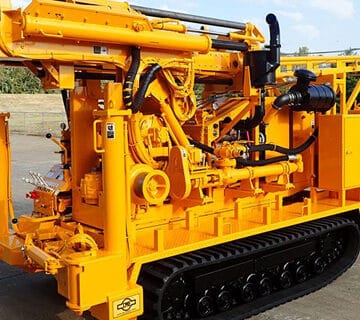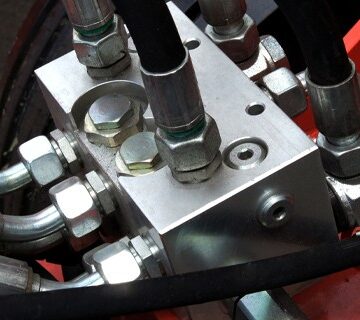Demand is at an all-time high and pressures like supply constraints coupled with fewer workers, operators and drivers make it near impossible to keep up. To make matters worse, the automotive market is suffering from production limitations, unavailable parts and an electronic chip shortage. To keep your fleet running smooth and protect your business, you may want to consider taking proactive measures today.
It’s time to start thinking about winterizing your fleet vehicles and heavy equipment. Before the first frost sets in, it’s critical that your equipment has been properly winterized to protect against expensive and unpredictable engine failure. Regular seasonal maintenance can help maximize vehicle uptime, reduce wear and tear and keep your drivers safe, even in the harshest conditions. We share a few tips from Penray® on how to winterize your vehicles and keep them running strong all year long.
Failure to properly winterize your trucks and heavy equipment can lead to:
- Overheating
- Wire corrosion or breakdown
- Reduced battery efficiency
- Damage to engine and engine block
- Moisture impact on transmission, suspension and braking systems
- Improper tire pressures and reduced traction
- Unnecessary wear and tear on engine components
- Poor fuel economy
Have questions on winterizing your fleet vehicles and heavy equipment?
Give us a call at 314-638-6500 OPTION 4.
Winterize Your Vehicles for Cold Weather Exposure
When the rubber meets the road, you have to be able to rely on your vehicle to perform, even in the harshest of conditions. Before you head out on the open highway, be sure to follow these simple, yet effective tips to winterize your fleet vehicles, trucks and heavy equipment.
Winterize Gasoline Engine
Cold weather can negatively impact the fuel in your vehicle, adversely effecting fuel economy or even causing it to freeze up. Gas-fueled engines require regular maintenance to ensure quick starts and reliable operation even in cold temperatures. Use these quick tips to make sure your gas engines fire the first time.
- Dry out the system
- Change fuel filters
- Use fuel injector cleaner
Winterize Diesel Fuel System
Diesel-fueled engines can cause diesel to gel or gum up in cold weather as it contains paraffin wax and wax residues from biodiesel additions. Use these tips to minimize the sludge and prevent choking out your fuel system.
- Dry out the system
- Change fuel filters
- Use a winter additive
- Have emergency treatment on hand
- Inspect fuel lines and heaters
Winterize Cooling System
Over time, regular maintenance can cause your engine coolant to become diluted with water, putting your engine performance at risk. Use these tips to get your engine coolant back on track.
- Check coolant condition
- Check hoses and belts for wear, leaks, cracks and loose fittings
- Check freeze point or antifreeze concentration
- Check additive concentration
Inspect Electrical System
Your vehicle’s battery is the power center for all the electrical elements required for optimal operation and cold temperatures can force your battery to work overtime. Use these tips to be sure your battery is in tip-top shape before heading out on the road.
- Have a qualified technician inspect battery for general condition
- Ensure batteries have adequate fluid
- Clean and coat battery ports with protective, anti-corrosion spray
- Have emergency quick start products on hand
Inspect Tires
When the temperature drops, the air volume in your tires can decrease causing your tires to be less responsive, more apt to blow-outs and require more frequent changeouts. Follow these tips to be sure your tires are winter ready.
- Check tires for recommended tire inflation pressure PSI
- Check tread (have a minimum of 4/32 inch of tread)
- Pack emergency non-flammable tire inflator
Inspect Glass
Glass is sensitive to temperature changes and cold weather can put stress on your windshield and windows. Follow these tips to protect your glass from winter weather.
- Inspect glass for nicks, divots or cracks
- Pack spray de-icers to thaw windows and locks
- Pack extra windshield washer antifreeze
Pack Cold Weather Kit
In the event that your vehicle breaks down and you are stranded in winter conditions, we advise packing a cold weather survival kit in vehicles and heavy equipment. Consider including items such as:
- Extra clothes, socks or blankets (sleeping bags)
- Waterproof boots and cold protection gloves
- Emergency water for drinking
- High-energy/ high-calorie food
- Triangles and flares
- Fire extinguisher
- Flashlights and new batteries
- Duct tape and electrical tape
- Hand and foot warming packets
- First aid kit
- Sand, salt or ice melt
- Shovel
- Tools
Give us a call at 314-638-6500 OPTION 4 and speak to a knowledgeable representative today!
Penray® has innovative chemical solutions designed for heavy-duty applications to help you winterize your trucks, cars, fleet vehicles and heavy equipment. Talk to your Superior Industrial Supply sales representative to learn more. They carry a full line of products including:
- Fuel and Winter Chemical Products
- Cooling System Products
- Antifreeze Inhibitors
- Oil System Maintenance
- Lubricants, Penetrates & Coatings
- Brake Maintenance
- Electrical System Maintenance
- Detail Products
- Specialty Cleaners
Superior Industrial Supply knows how important it is to have durable and reliable equipment for your most demanding applications. That’s why we partner with top-rated suppliers like Penray. Give us a call at 314-638-6500 OPTION 4 or 800-783-6501 and let us know how we can help you find the products, services and advice you need to do just that.
Don’t forget to visit our website or read our blog for more information!





